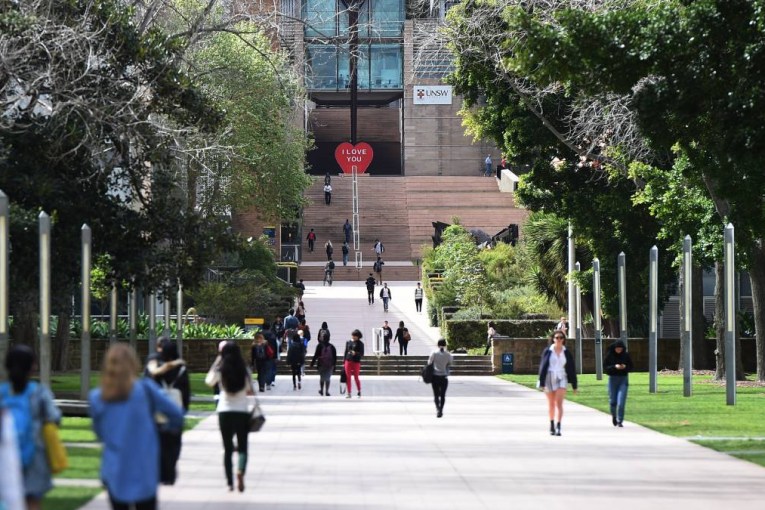Dennis Atkins: Energy, internet and an early federal election on the horizon

During an ALP national conference at Hobart’s Wrest Point Casino and Hotel in the mid-1980s, federal minister Mick Young was asked by the new head of Westpac Robert White what Labor would do if the conservatives came up with a good policy.
“We’d pinch it,” Young replied, punctuated with his trademark Irish grin.
Both Young and White are deceased but the point remains a fundamental of good political tradecraft.
If your opponent has an idea that the public will like, grab it, rebadge or polish it and represent it as your own.
This was on display this week when the Morrison Government remade itself as the champion of a restyled, Labor-created broadband policy, junking seven years of splicing together an ad hoc, hooks, and wires network.
It was breathtaking to watch, as is much of what the Morrison Government and its allies, accomplices, and outriders (in this case the National Broadband Network) set out to do, or give the illusion of doing.
Labor was understandably outraged.
Not only had the Coalition, through the NBN, pinched the ALP’s policy, but they had also rebadged it as faster and said it would be available to millions from next year.
This “blazing fast” internet was featured in stories around the country.
“Millions in Rockhampton will have super-fast internet,” said one report in Central Queensland.

Is an early-election on Scott Morrison’s mind? Photo: TND
There are plenty of questions about who might want gigabit speeds and whether they’d be prepared to pay a premium to access the service – as well as who will be left sitting in their cars on the top of hills looking for a connection – but the overall sell for the policy was as good as it gets.
Just as we saw with the energy and emissions policy preceding the broadband roadshow, there were third parties on hand to endorse and promote the government’s works.
You don’t get a reputation for marketing without being able to do this stuff at a canter.
The method of selling the energy and emissions plans (as vague as both were) and the born-again broadband package were not the only similarities apparent in these policy pitches.
They also crowded out Labor from the policy field.
As far as energy and emissions are concerned, the government won’t worry that investors were nonplussed by some of the announcements, or that commentators declared there was “no there, there”.
What they were aiming for – and achieved – was the perception of doing something which had a big jobs sticker on it.
Labor meanwhile, was torn between accepting the government plan and trying to argue it wasn’t as simple as it all seemed.
You sense they might be losing the argument before it begins.
What passed for policy debate in Labor ranks descended to insults by the end of the week.

Labor figures including Kevin Rudd are furious the Government stole their policy. Photo: TND
On broadband, Labor will find it hard to overbid and propose improving the rollout, although they will most certainly propagate a line that this is all about fattening the NBN for sale on the other side of the next election.
Mention of the next election points to another common thread in all this activity.
Scott Morrison’s close allies in the government like to remind people of the Prime Minister’s skill at playing many moves ahead of his opponents.
Those who worked with him on the last “back from the dead” election campaign say it was this knack that allowed him to outsmart and outmaneuver Bill Shorten and Labor all the way to polling day.
It looks like he’s setting out to do it again.
Twelve months to go?
He is marking out his turf for a post-pandemic political battle which will move on from the success of fighting COVID-19 and into the broader contest of economic recovery and jobs.
Those who are tracking COVID-era polling here and around the world reckon the “rally round the flag” impact of strong leadership is going to fade in the first two quarters of 2021.
This means Morrison and his team will need to broaden the debate, box in their opponents and roll on relentlessly until polling day.
The markers set down on energy, emissions, and broadband either undercut the Labor Opposition or neutralize a potential negative.
All this gives the strongest indications yet that we are heading for an early election late in the third quarter of next year. The comprehensive junking of any fiscal strategy until unemployment is pushed down is further evidence of a “whatever it takes” approach to election planning.
According to the published timetables, the first date for a full House and Half Senate election is August 7 next year but it is likely to be delayed until about a month later.
This is because redistributions are underway in Victoria and Western Australia – while the outcome of losing a seat in the west and gaining one in their southern state are uncertain, insiders say the government will wait until these boundaries are redrawn in the hope they might start with an extra electorate.
This would mean an election date sometime in the second half of September 2021.







